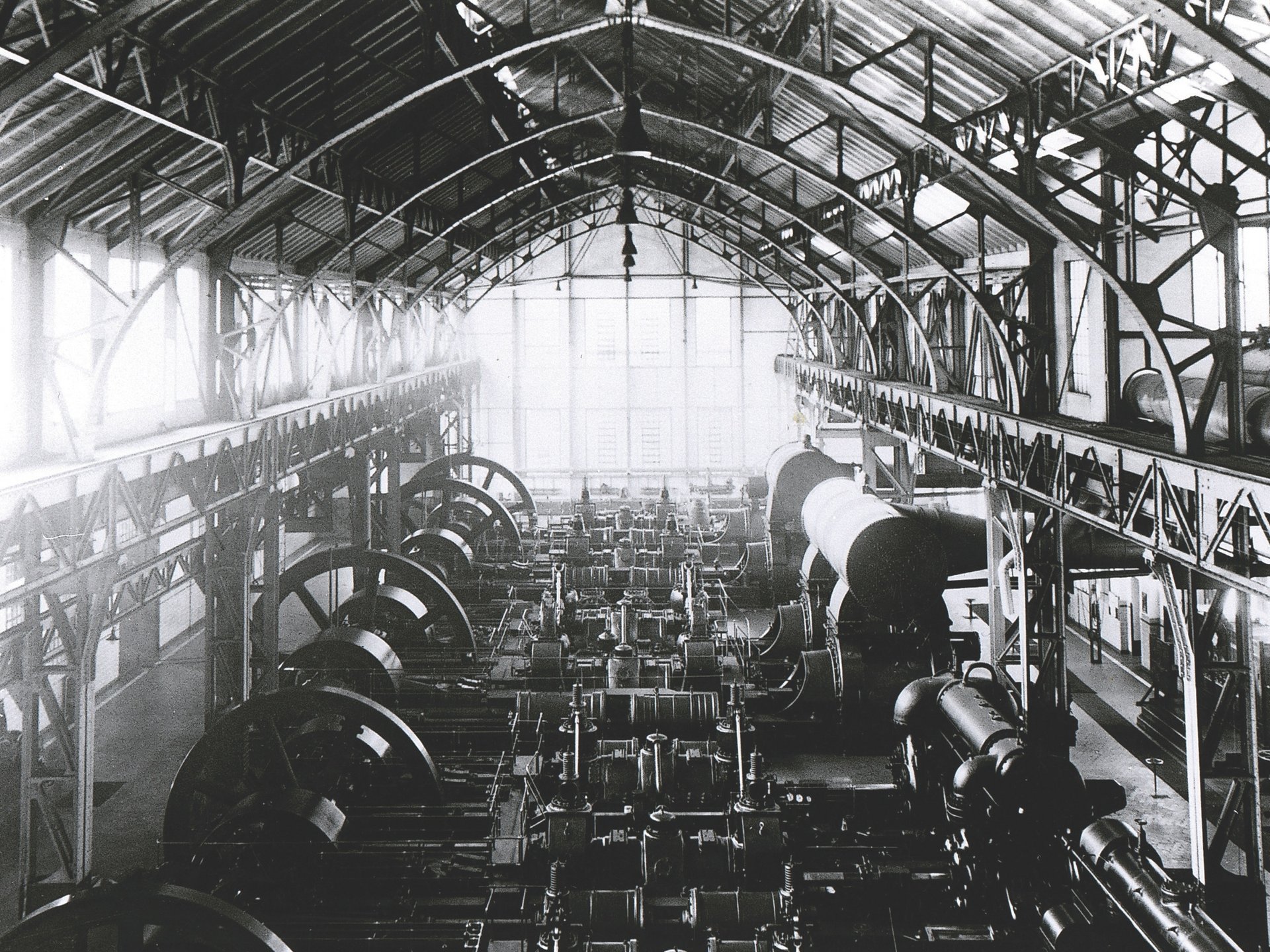
A glimpse into the past & presentDiscover the fascinating history of the Jahrhunderthalle Bochum!
From steel production to concerts and trade fairs - the Jahrhunderthalle has an eventful past and is now a major event venue. On a guided tour of the halls, the underground worlds or the Westpark, you gain exciting insights into the history and architecture of the hall. Prepare to be impressed by this special location and experience time travel through the decades!
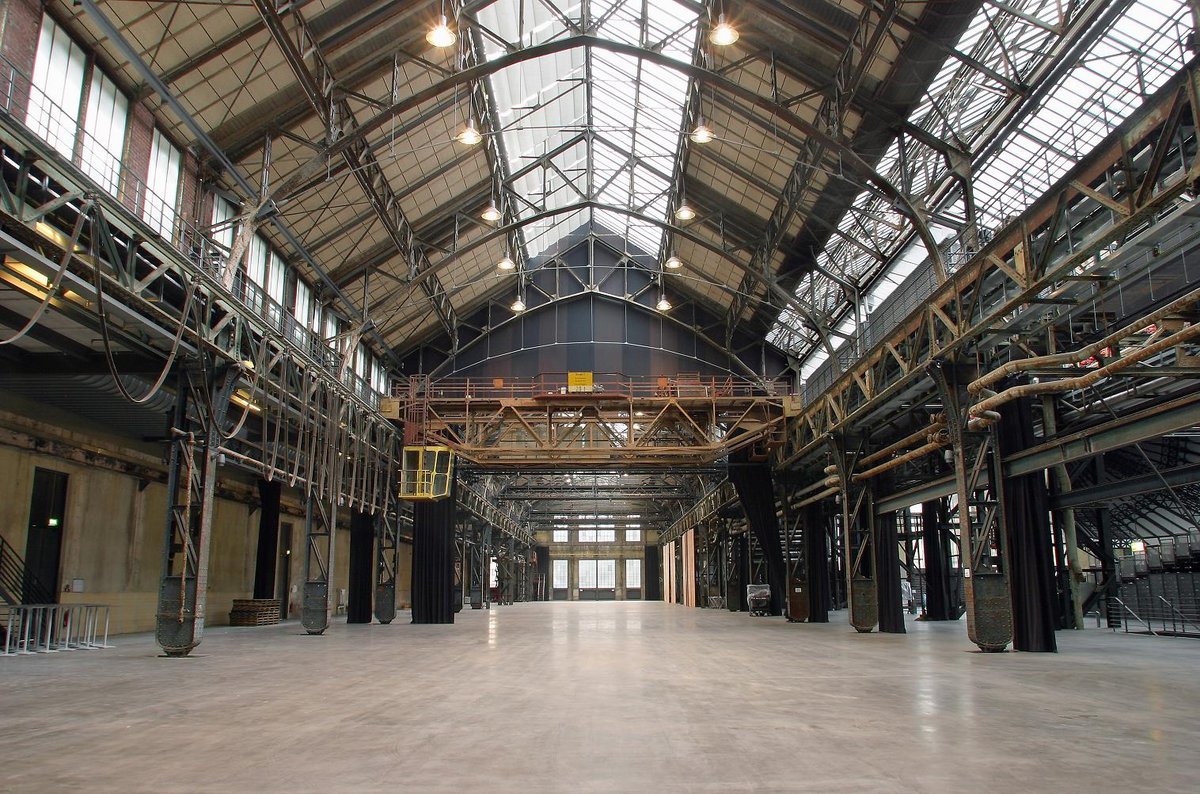
Guided tour of the Jahrhunderthalle Bochum
There are few places where past and present are as successfully combined as in the monument-protected Jahrhunderthalle Bochum. In an exciting guided tour you will learn a great deal about the transformation of the imposing building from a gas power station to the central festival hall of the Ruhrtriennale. Prepare to be impressed by the superb architecture - after all, the Jahrhunderthalle Bochum is often referred to as a landmark of the new Ruhr metropolis.
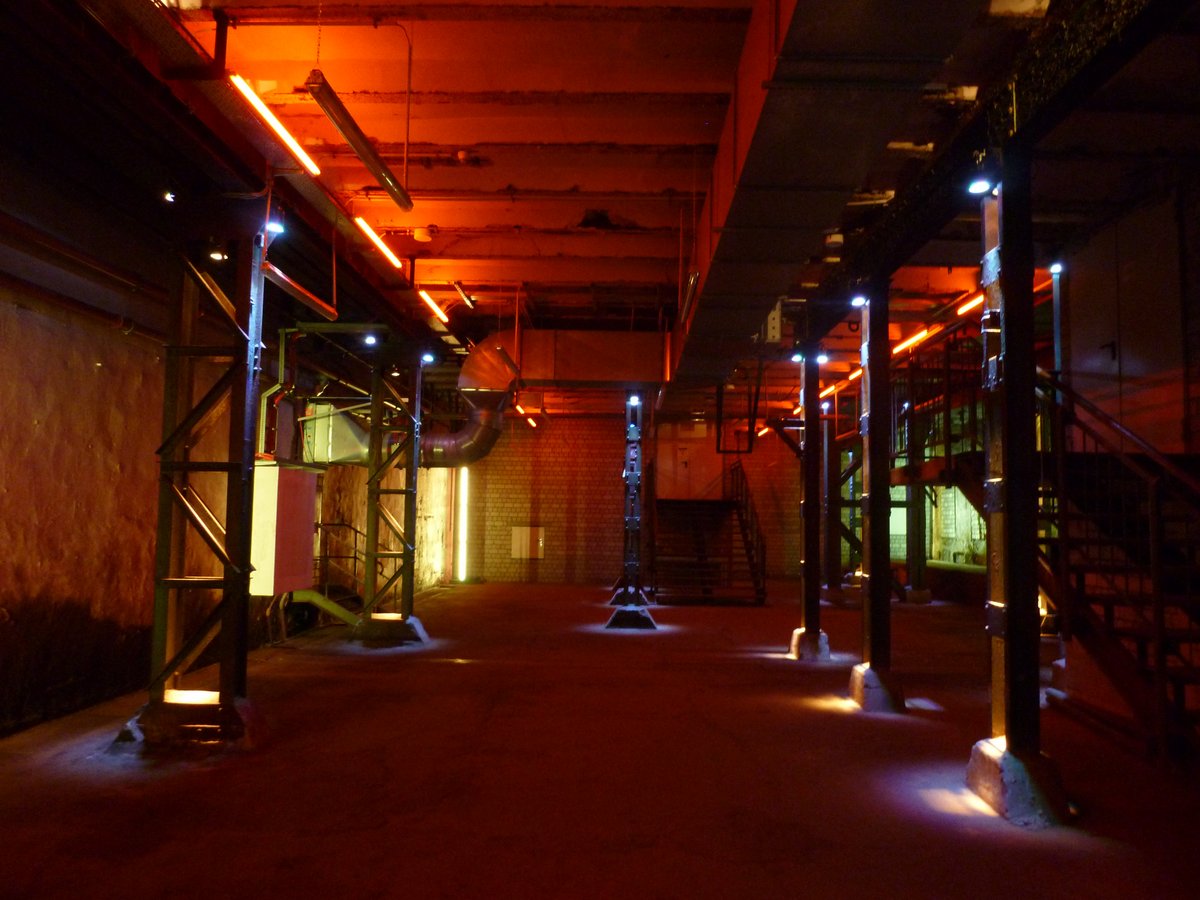
Guided tour underground & Westpark
Experience the Jahrhunderthalle Bochum “underground”. The underground supply shafts were once part of a widespread underground system that connected external production sites throughout Bochum. In addition, “above ground” you can experience the Westpark, which was opened on the former site of the Bochumer Verein in 1999 and is a successful example of brownfield redevelopment, connecting nature, culture and the industrial past.
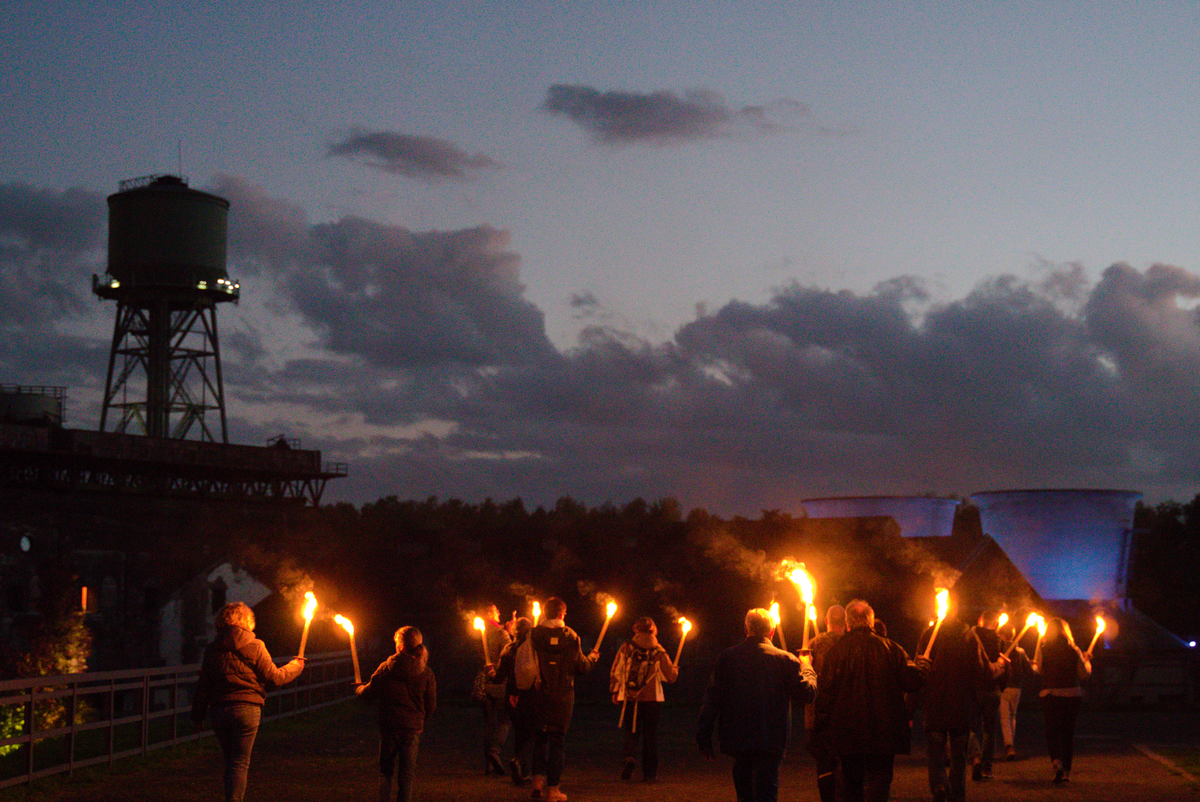
Guided tour with torches & darkness
On this tour you can discover the “dark” side of the Westpark around the Jahrhunderthalle Bochum. The tour takes the participants on a journey into the past of Bochum’s coal and steel industry and conveys interesting and valuable insights into the site of the Jahrhunderthalle Bochum, the Westpark and working-class life during the heyday of the Bochumer Verein. A torch in your hand lights the way while the tour guide explains special buildings and historical points on the circular route.
Important information:
the tour is in darkness on partly uneven terrain – sturdy shoes and appropriate clothing for the weather are required. Since the tour has to take place in the twilight/darkness, it is only suitable for group bookings in the months October to March.
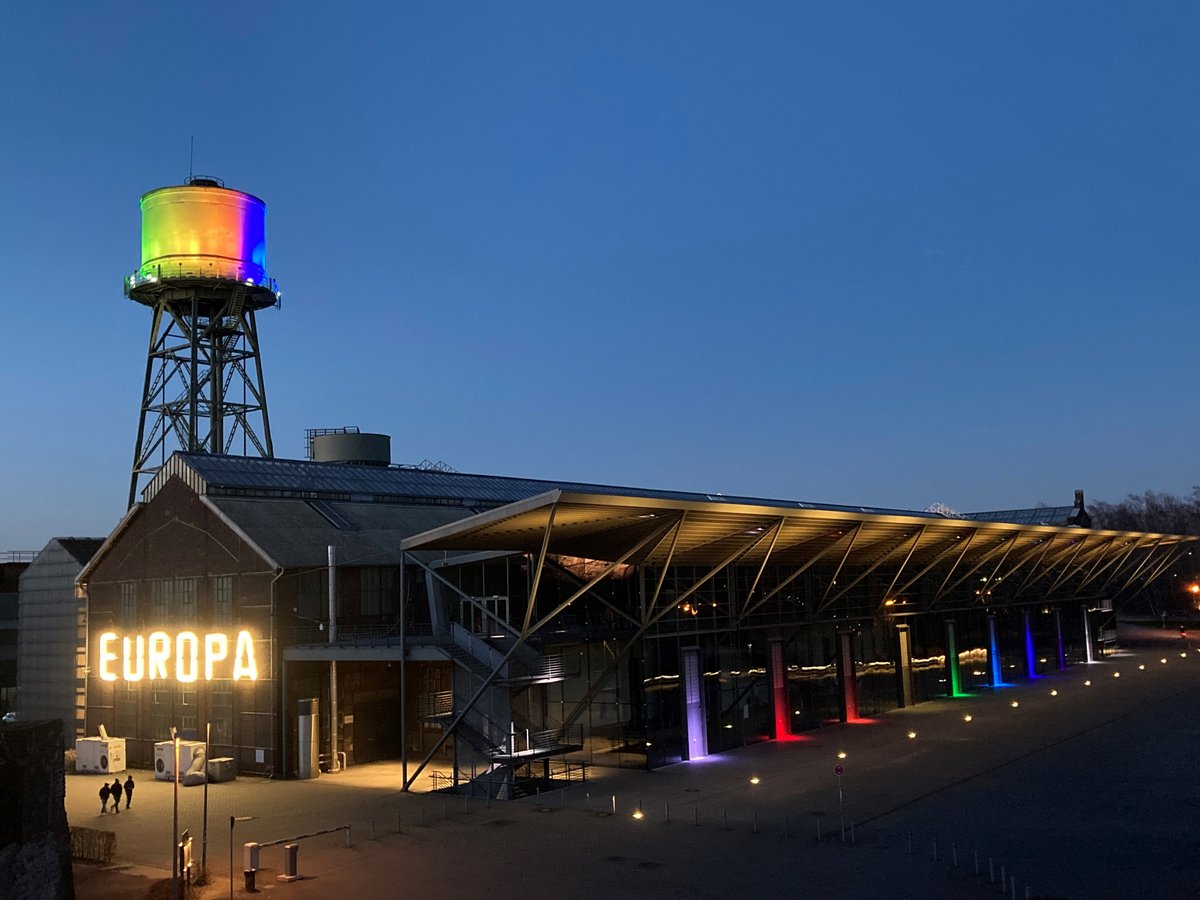
Curious?
You will find the tour dates for 2023 in our Calendar of Events. You will also find further information and dates for special tours on our social media channels.
You can book the tours conveniently on the pages of Bochum Marketing GmbH.
Bochum Marketing GmbH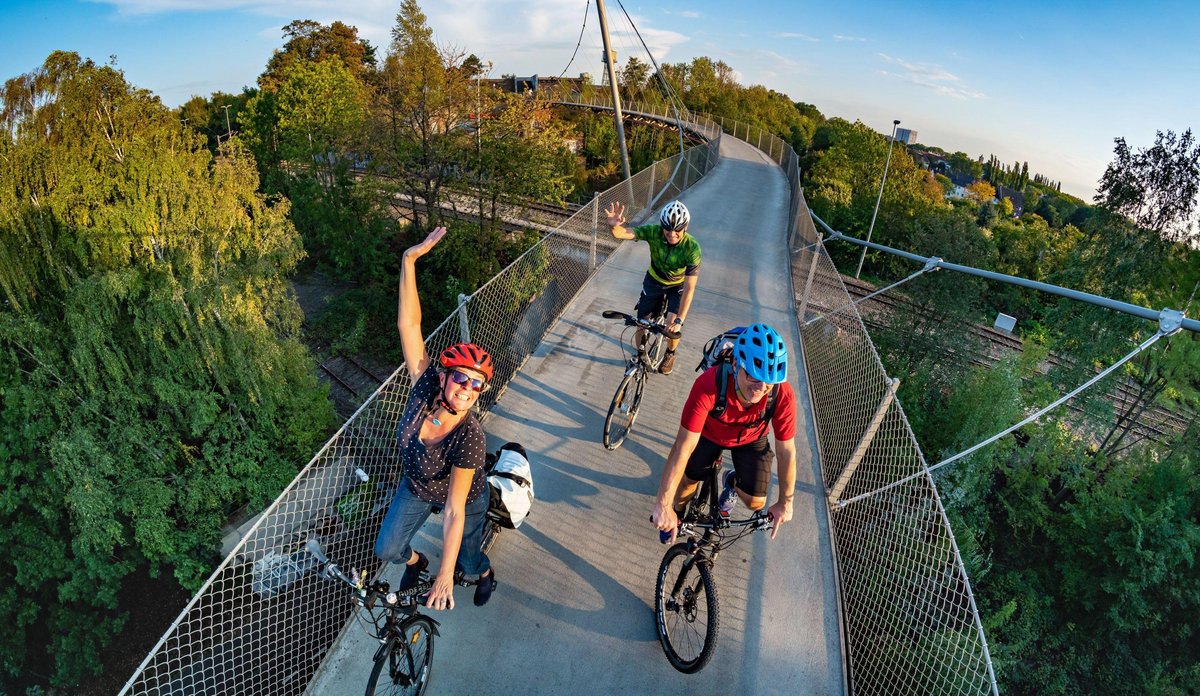
Discover the Ruhr district by bike!
The RevierRad station at the Jahrhunderthalle Bochum provides the perfect opportunity. Whether you are alone or with friends, here you will find everything you need for a successful bike tour.
Our station is open daily from April to October from 10:00 to 18:00 hrs. and offers a wide range of services and rental bikes: choose from city bikes, e-bikes, trekking bikes or tandems. We have special children’s bikes and bike trailers for children.
You want to make sure that your dream bike is available? No problem! You can easily make a reservation online on the RadRevier website. You can pay on site in cash.
Our friendly staff are happy to help you choose the right bike and give exciting tips for the most beautiful bike tours through the Ruhr district. So your trip will be an unforgettable experience. Come and enjoy cycling in the region.
We look forward to your visit!
RevierRad-Station Jahrhunderthalle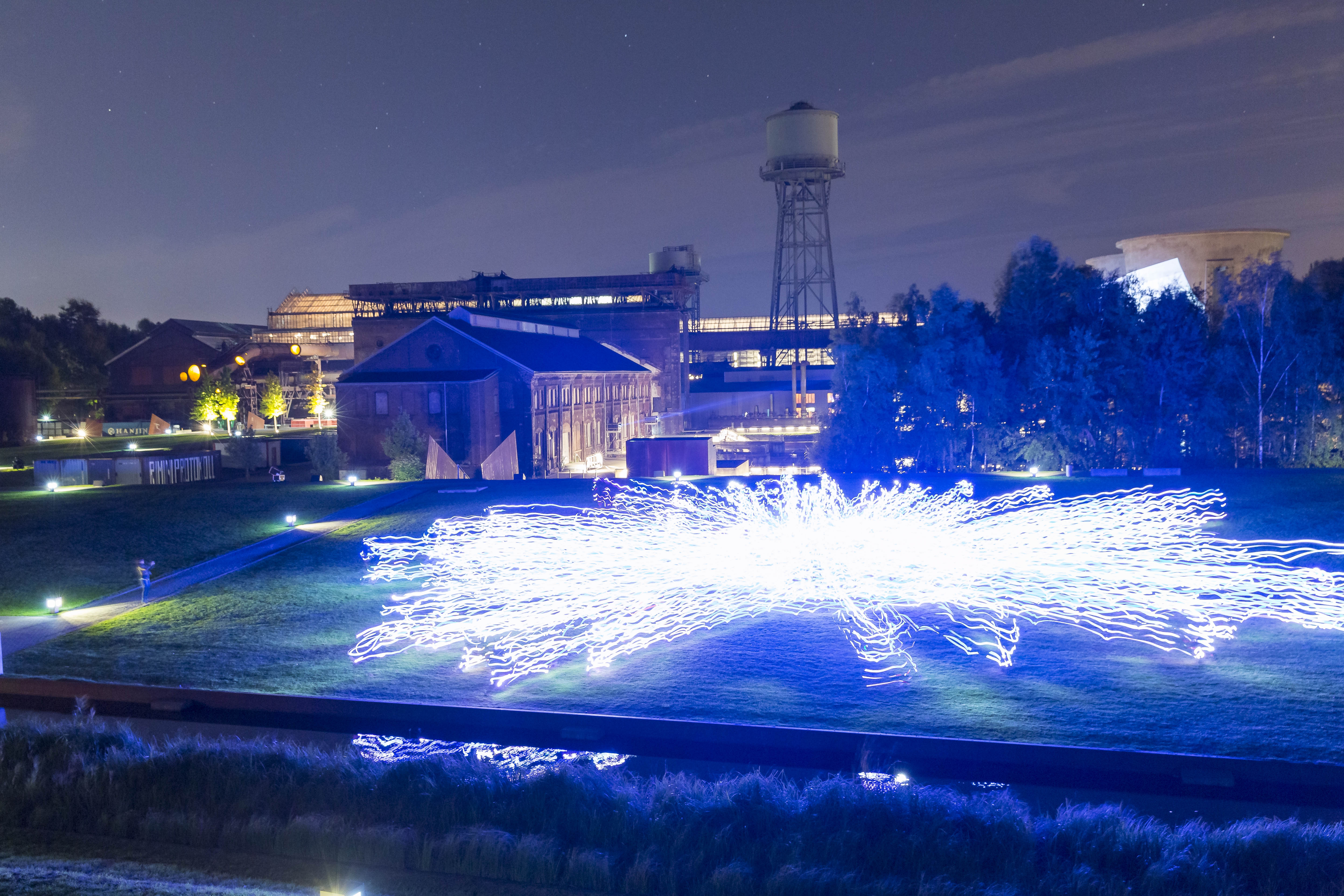
Speed of Light | Westpark
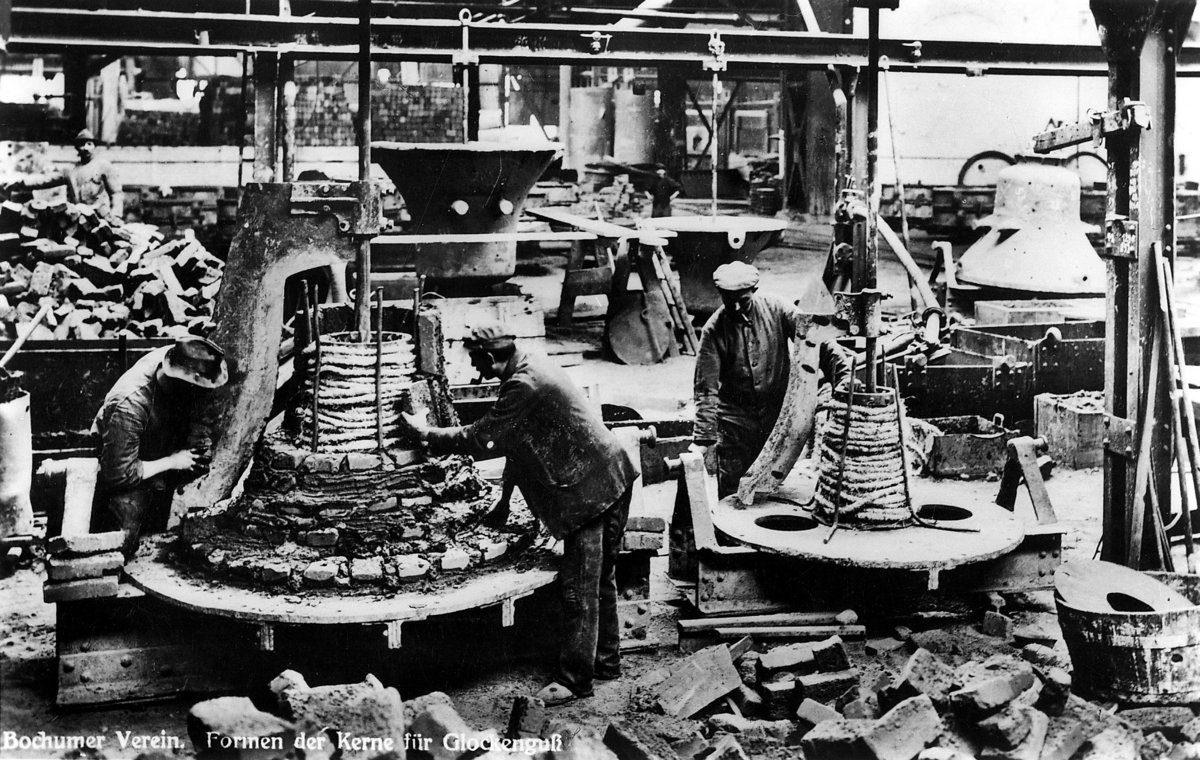
The peace bells of Hiroshima are from the Bochumer Verein
As a gas power station, the hall was literally there to provide the energy for further expansion of the company in the future. In 1920, the Bochumer Verein employed 17,000 people, and in later years some 22,000.
The Berlin Olympic bell, the century bell of Frankfurt’s Paulskirche church and the peace bells in Hiroshima are probably the company’s most famous products. During the world wars, the Bochumer Verein was one of the largest armaments companies. In the post-war years, it made a wide range of steel products. I965 it merged into “Friedrich Krupp Hüttenwerke AG”. In 1968 the last blast furnaces were shut down and the machines in the gas power station were dismantled.
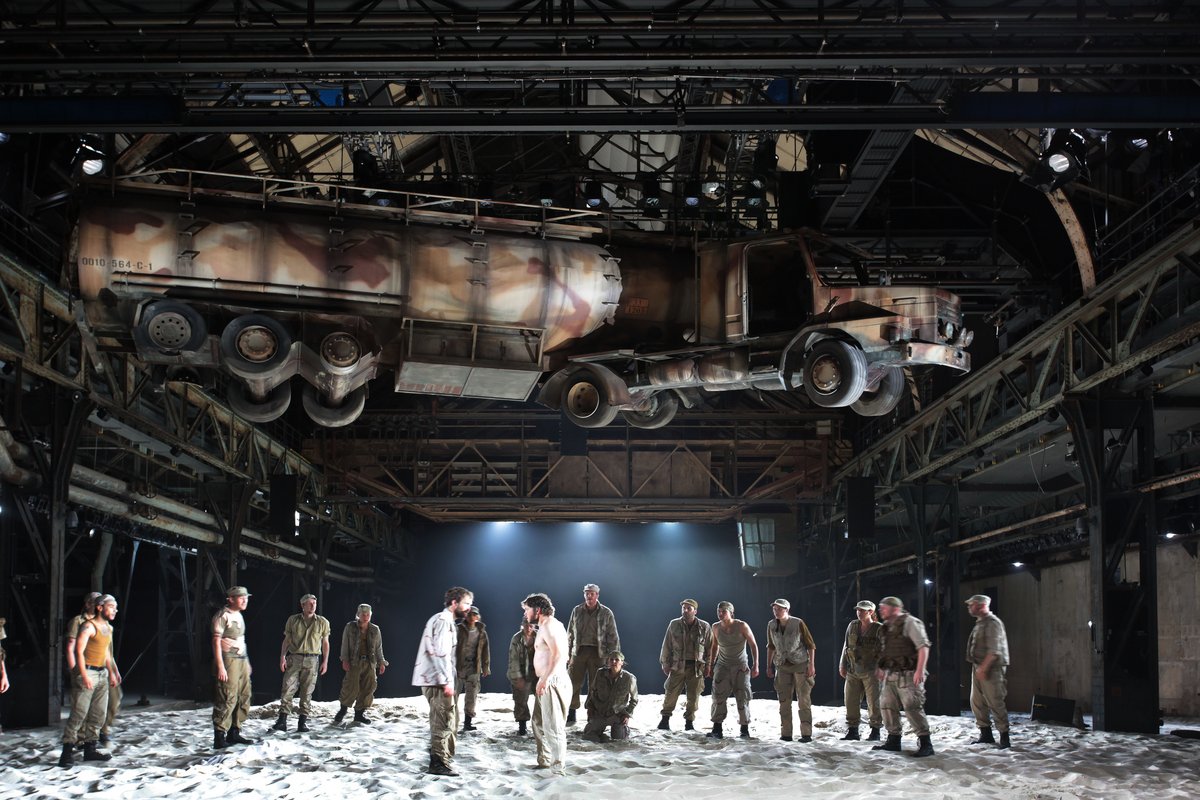
Acclaimed principal venue of the Ruhrtriennale
In the years that followed, the significance of the hall, which was placed under monument protection, for the cultural life of the region grew steadily. It became one of the main anchor points of the “Industrial heritage route”, which connects 25 outstanding examples of industrial culture. When the surrounding Westpark opened in 1999, the plans for the conversion of the hall became more specific.
An architectural competition was set up. The winning design by the office Petzinka Pink from Düsseldorf was based on the idea of using the industrial cathedral as a festival hall for the Ruhrtriennale. Since 2003, the Jahrhunderthalle Bochum has been the principal venue of the Ruhrtriennale. Thanks to outstanding Ruhrtriennale productions such as Mozart’s “Magic Flute”, Messiaen’s “Saint Francois d'Assise”, Claudel’s “The Silken Shoe”, the acclaimed new production of Bernd Alois Zimmermann’s imposing opera “Die Soldaten” (The Soldiers) in 2006, and the opera “Moses and Aaron” staged in 2009, it has become one of the most important festival halls of our time. Every year, it attracts many visitors from around the world to Bochum.
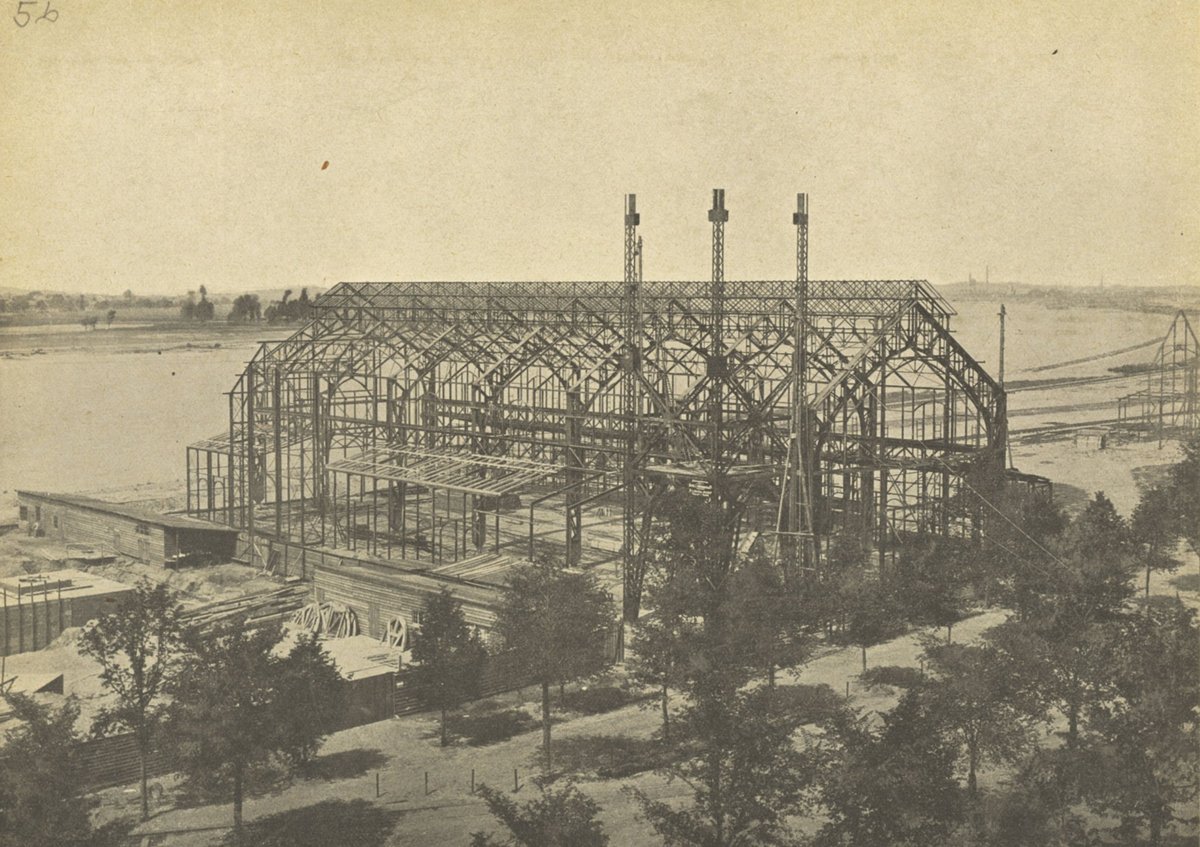
Much more than just an industrial wasteland
After the Jahrhunderthalle Bochum was shut down, the city of Bochum and the state of North Rhine-Westphalia looked for ways to use the immense industrial site. As a consequence of the handover of the approximately 34.5 hectare site to the Landesentwicklungsgesellschaft NRW (LEG), the course was decisively set at the end of the 1980s.
In the context of a workshop, renowned planning offices were to develop a concept for the area. The first use of the Jahrhunderthalle Bochum as a venue was back in 1991 as part of a joint concert by the Bochum Symphony Orchestra and the Leipzig Radio Philharmonic Orchestra. At that time, despite its unrenovated state, it was already clear: this place is far more than just an industrial wasteland.
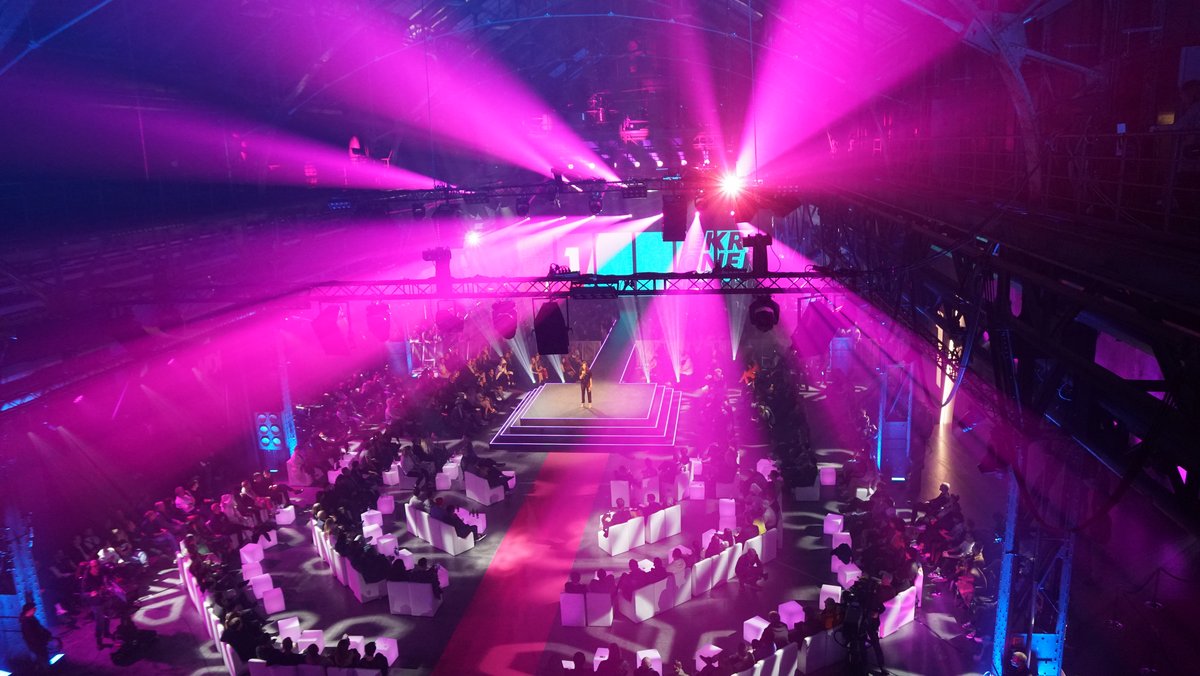
Celebrities, prizes & co.
Together with the Westpark, the Jahrhunderthalle Bochum is also a popular destination for walkers and cyclists. Every year, the German music scene celebrates various award ceremonies here, such as the “1Live-Krone”. Prominent figures from politics and business also meet in the hall at galas and federal party conferences.
There are also festivals on the outdoor area, which draw world-famous DJ’s to Bochum. The Jahrhunderthalle Bochum therefore not only stands for the successful structural transformation of the region, but, with its incomparable atmosphere, it is also a symbol for the future.